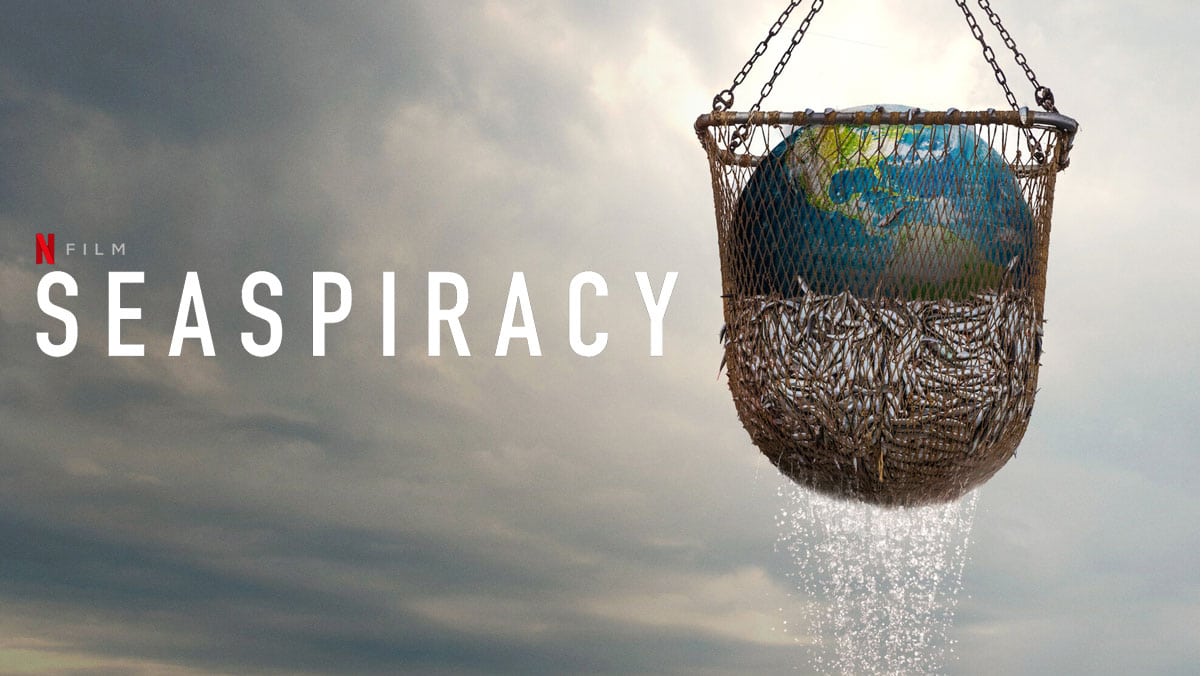

The Seaspiracy documentary presents a nuanced and interesting take on the fishing industry and its associated environmental and structural problems. It highlights the (potential) largest issue behind the ocean pollution that is overlooked and obscured by the emphasis on reducing straw use and plastic waste, namely the pollution and problems caused by fishing instruments.
The visual appeal and clear, detailed explanation of the issue makes this an informative and attractive documentary. The producers of the documentary used relevant examples from across the world, conducted several interviews and made in-depth comparisons of the fishing situation in different countries. For example, they discussed the reasons for the Taiji dolphin drive hunt in Japan and whaling at the Faroe Islands in Denmark. The examples showed that the problem of overfishing and oceanic damage is not exclusive to a specific country, and that worldwide effort is required in solving these problems. The interviews provided insight from experts, individuals who are and were part of activist organisations, and the people who have been trafficked in the fishing industry. Lastly, comparing the scale of the underwater ‘deforestation’ to the size of countries created an effective visualisation and understanding of the severity of the issue.
While many important topics were brought up, the two main takeaways for me were, firstly, to be careful with which organisations you support as some ‘activists groups’ may be exploiting the problem or are backed by companies who are part of the fishing industry. Secondly, the problem of overfishing and ocean pollution trickles down to impact livelihood and other ecosystems. It was found that illegal fishing and overfishing increased wildlife hunting as the dwindling numbers of fish force locals to find their source of food elsewhere. In addition, consuming bush meat increases the risk of new diseases like Ebola. Looking at the nearly two years we have had, battling COVID-19, I think many would want to avoid another pandemic. COVID-19 is not linked to overfishing, but you can imagine that with the increased risk of new dangerous viruses, more pandemics are likely.
However, a point of criticism is the one-sided nature of the documentary. Personally, I agree with the content, but I would have appreciated a more balanced view, whereby proponents of the fishing industry were given more time to explain their viewpoint. The interrogative style of the interviews also prevented a more balanced discussion as badgering people with questions and putting people on the spot often results in defensiveness which opposes an open and productive discussion. For example, at one point, the interviewer took phrases out of context to goad the interviewee into ‘spilling secrets’. The documentary also showed several people and organisations who didn’t want to speak. This refusal is understandable since most (undercover) journalists have a somewhat unfriendly and interrogative interviewing style.
From a psychological perspective, the issue of the availability heuristic likely resulted in the skewing of what people focus on when addressing environmental issues. We may be causing more damage to the ocean than land, but we don’t notice it as much because of the vastness and depth of the ocean that is beyond our sight. As mentioned by one interviewee, ‘We’re deforesting the ocean but maybe because we don’t see it, we don’t think about it’. In addition, when thinking about damage to the ocean, things that usually come to mind are plastic waste and oil spills. However, the documentary mentioned that the oil spill of 3 months in the Gulf of Mexico did less damage than a single day of fishing in the Gulf. The oil spills may even help because it gives these water bodies a respite from the impact of fishing as fishing is halted when there is an oil spill.
Compared to documentaries like Cove Dolphins and Blackfish that approach the issue of the impact of human activity on the sea from a more humanitarian perspective, Seaspiracy takes a more organisational and economic view on the human problems plaguing the sea. Based on these documentaries, the way I see it, the problem is capitalism and its corresponding structure. The chase for money fuels overfishing and fishing for high-valued creatures that pushes the ecosystem out of balance. Combined with the lack of accountability (e.g. difficulties monitoring and enforcing sustainable fishing laws) and poor social focus (e.g. the emphasis on reducing straws rather than tackling the fishing industry or encouraging less consumption of seafood) of ‘activists’, it allows for the continued abuse of the environment. Furthermore, the embedded and integrated nature of the fishing industry makes it difficult to tear it down. For instance, even if you don’t eat fish, you may be fuelling the industry through your taxes, for the countries whose governments support the industry.
Seaspiracy is now available on Netflix.

The Seaspiracy documentary presents a nuanced and interesting take on the fishing industry and its associated environmental and structural problems. It highlights the (potential) largest issue behind the ocean pollution that is overlooked and obscured by the emphasis on reducing straw use and plastic waste, namely the pollution and problems caused by fishing instruments.
The visual appeal and clear, detailed explanation of the issue makes this an informative and attractive documentary. The producers of the documentary used relevant examples from across the world, conducted several interviews and made in-depth comparisons of the fishing situation in different countries. For example, they discussed the reasons for the Taiji dolphin drive hunt in Japan and whaling at the Faroe Islands in Denmark. The examples showed that the problem of overfishing and oceanic damage is not exclusive to a specific country, and that worldwide effort is required in solving these problems. The interviews provided insight from experts, individuals who are and were part of activist organisations, and the people who have been trafficked in the fishing industry. Lastly, comparing the scale of the underwater ‘deforestation’ to the size of countries created an effective visualisation and understanding of the severity of the issue.
While many important topics were brought up, the two main takeaways for me were, firstly, to be careful with which organisations you support as some ‘activists groups’ may be exploiting the problem or are backed by companies who are part of the fishing industry. Secondly, the problem of overfishing and ocean pollution trickles down to impact livelihood and other ecosystems. It was found that illegal fishing and overfishing increased wildlife hunting as the dwindling numbers of fish force locals to find their source of food elsewhere. In addition, consuming bush meat increases the risk of new diseases like Ebola. Looking at the nearly two years we have had, battling COVID-19, I think many would want to avoid another pandemic. COVID-19 is not linked to overfishing, but you can imagine that with the increased risk of new dangerous viruses, more pandemics are likely.
However, a point of criticism is the one-sided nature of the documentary. Personally, I agree with the content, but I would have appreciated a more balanced view, whereby proponents of the fishing industry were given more time to explain their viewpoint. The interrogative style of the interviews also prevented a more balanced discussion as badgering people with questions and putting people on the spot often results in defensiveness which opposes an open and productive discussion. For example, at one point, the interviewer took phrases out of context to goad the interviewee into ‘spilling secrets’. The documentary also showed several people and organisations who didn’t want to speak. This refusal is understandable since most (undercover) journalists have a somewhat unfriendly and interrogative interviewing style.
From a psychological perspective, the issue of the availability heuristic likely resulted in the skewing of what people focus on when addressing environmental issues. We may be causing more damage to the ocean than land, but we don’t notice it as much because of the vastness and depth of the ocean that is beyond our sight. As mentioned by one interviewee, ‘We’re deforesting the ocean but maybe because we don’t see it, we don’t think about it’. In addition, when thinking about damage to the ocean, things that usually come to mind are plastic waste and oil spills. However, the documentary mentioned that the oil spill of 3 months in the Gulf of Mexico did less damage than a single day of fishing in the Gulf. The oil spills may even help because it gives these water bodies a respite from the impact of fishing as fishing is halted when there is an oil spill.
Compared to documentaries like Cove Dolphins and Blackfish that approach the issue of the impact of human activity on the sea from a more humanitarian perspective, Seaspiracy takes a more organisational and economic view on the human problems plaguing the sea. Based on these documentaries, the way I see it, the problem is capitalism and its corresponding structure. The chase for money fuels overfishing and fishing for high-valued creatures that pushes the ecosystem out of balance. Combined with the lack of accountability (e.g. difficulties monitoring and enforcing sustainable fishing laws) and poor social focus (e.g. the emphasis on reducing straws rather than tackling the fishing industry or encouraging less consumption of seafood) of ‘activists’, it allows for the continued abuse of the environment. Furthermore, the embedded and integrated nature of the fishing industry makes it difficult to tear it down. For instance, even if you don’t eat fish, you may be fuelling the industry through your taxes, for the countries whose governments support the industry.
Seaspiracy is now available on Netflix.



